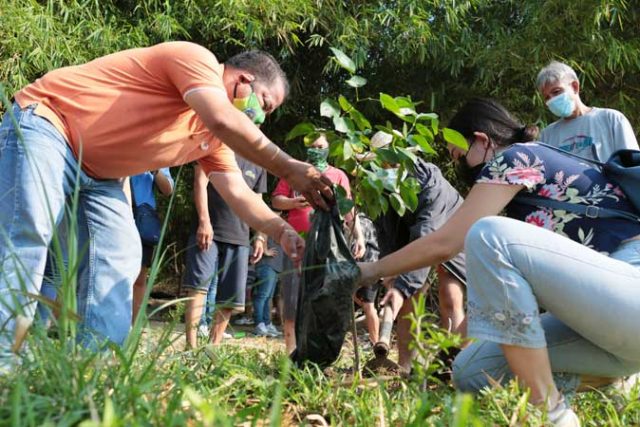PHL firms urged to localize sustainability criteria

By Jenina P. Ibañez, Reporter
PHILIPPINE COMPANIES must evaluate their sustainability practices based on local needs that can sometimes be distinct from the requirements of developed countries, sustainability practitioners said.
“Make sure that you localize these issues. We’re not a developed country, so I don’t think that we necessarily have to follow standards set by countries that have already stopped growing and are no longer in need of economic growth,” Aboitiz Equity Ventures Senior Vice-President Manuel R. Lozano said in a BusinessWorld Insights forum on Wednesday.
Firms follow a set of environment, social, and corporate governance (ESG) criteria that assesses their performance in protecting the environment, managing relationships with employees and communities, and ensuring transparent governance.
 Business representatives at the forum said that these criteria have become more important for stakeholders and investors in recent years.
Business representatives at the forum said that these criteria have become more important for stakeholders and investors in recent years.
“If you asked us maybe a year ago, you would have maybe a few meetings where investors ask us about ESG, mainly those from Europe and a little bit from the United States,” PLDT, Inc. Investor Relations and Corporate Sustainability Office Head Melissa V. Vergel de Dios said.
“As the year passed, we’ve seen a lot of fund managers ask more about sustainability and what we’re doing in the areas of ESG, and to varying degrees… I guess it’s becoming important now for fund managers more and more to make sure that the companies that they’re investing in will carry on many years from now.”
ESG criteria should be adapted to issues that are unique to the Philippines, the experts said.
The Philippine environment is distinct, with expansive mangroves and rainforests that need to be protected, Ms. Vergel de Dios said.
“(There are also) activities that may also be present in the Philippines like illegal logging that we can address, in our case using technology,” she said.
European countries set sustainability goals and best practices, BDO Unibank, Inc. Vice-President for Sustainability Marla Garin-Alvarez said.
“The one thing we always think about in the Philippine context is, geographically we are in a very disaster-prone area which impacts anything else that has to do with the environment and social impact to the people,” she said.
Social inequality in the Philippines is also distinct from other countries, she added.
“And then there are also the sources of energy. In Europe, they don’t really have a lot of solar power sources, but that’s what we have in abundance in the Philippines.”
Maria Yolanda “Yoly” C. Crisanto, chief sustainability officer at Globe Telecom, Inc., said that differences in levels of adoption, culture, and enablement lead to a need for strong partnerships between the private and public sectors.
“Government can also include enabling laws, some more incentives in terms of more sustainability-linked businesses,” she said. “There’s a lot of sustainability-linked businesses that are sprouting everywhere, especially in areas like the more advanced countries. That’s something that we can think about.”



